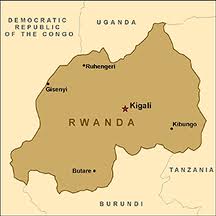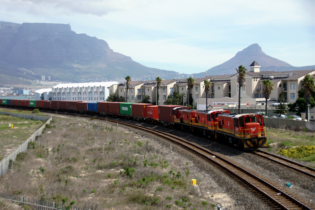From landlocked to land-linked – Rwanda is striving to become the regional trade hub by capitalising on its location between East, West and Central Africa to serve its neighbours.
In its bid to become the ‘Switzerland of Africa,’ the country has set aside a 50-acre site for parking, warehousing, infrastructure and dry docking. Francois Kanimba, Rwandan Minister of Trade and Industry says, “Rwanda should be the centre where industries could be based to distribute their goods in all our neighbouring countries.” “We are looking at potential investors to help us develop a Trade and Logistics Hub on a 50-hectare site that can handle containers to and from neighbouring countries, with huge parking, major warehousing, infrastructure and dry docking to cut the costs of doing regional business.” Rwanda sits strategically at the crossroads of East Africa’s two main transport arteries, the northern corridor from Kenya’s Mombasa port and the central one from Tanzania’s Dar es Salaam, a commanding vantage point for trade between the East African Community states, the Democratic Republic of Congo, and beyond. Rwanda’s plan envisages a “dry port” linking East with West Africa, where bulk cargo could be offloaded, warehoused, and re-exported. The hub would be complemented by a new Trade Mark East Africa supported One Stop Border Post with Uganda at Katigumba, Mirama hills, an air cargo and agricultural logistics facility to underpin high value but low volume exports, such as flowers and fruits and a range of banking, insurance, forwarding and clearing facilities linked to regional markets.The vision for a trade hub comes from research conducted by the Rwandan Ministry of Trade and Industry (MINICOM) in November 2012, which laid out a blueprint for Rwanda to increase cross border trade with its neighbours, Uganda, Burundi, the Democratic Republic of Congo and even beyond into francophone West Africa.
Compared to its EAC neighbours, landlocked Rwanda is small and lacking in resources – minerals, coffee and tea are its major exports – and faces huge problems competing with manufacturers in Kenya, Tanzania and Uganda. Trade Mark East Africa will support bonded warehousing for formal trade on the border with DRC as well as cross-border markets for informal trade, supported by programmes carried out by the NGOs Profemmes and Microjustice so that women traders know their rights and responsibilities and can profit more from the trade. The hub would bring down transport and trade costs and allow trucks which arrive laden in Rwanda but go back empty to take advantage of regional opportunities and return to their original destination fully loaded and earning money on the way. East Africa’s transport costs are among the highest in the world. Source – Trade Mark East Africa






